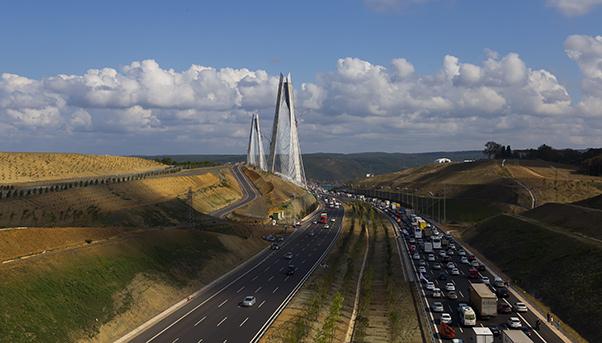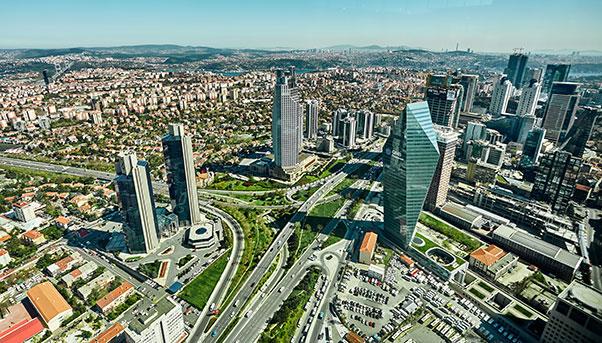
As it prepares to celebrate the centennial anniversary of the founding of the republic, Turkey is investing hundreds of billions of dollars on infrastructure to give its economy the elements it requires to rank among the biggest in the world. Under a plan called Vision 2023 – the year when the country will celebrate its founder, Mustafa Kemal Atatürk – President Recep Tayyip Erdoğan is overseeing $400 billion of investments in every sort of infrastructure.
Doubling GDP
Vision 2023 is not just a long list of projects to be completed in six years but a reflection of the country’s ambitions to rank itself among the top 10 economies of the world. The plan is being followed by the government to try to boost gross domestic product (GDP) from $1 trillion in 2015 to $2 trillion by 2023, as well as bring unemployment below 5%, increase annual exports to $500 billion and turn Istanbul into one of the 10 leading financial centres in the world.
These goals will be difficult – but not impossible – to reach as Turkey investments heavily in strategic sectors like infrastructure. «Priority will be given to infrastructure investments which will support economic productivity in the medium and long term (highway, railway, airports, dams, irrigation, ICT)», reads an accompanying document to Vision 2023 published by the Investment Support and Promotion Agency of Turkey in 2015.
The total number of projects under development are many: some 3,500, according to Transport Minister Ahmet Arslan.
In the transport sector, the government envisions having a road network of 36,500 kilometres, 7,500 kilometres of highways and 10,000 kilometres of railway lines for high-speed trains.
Investments in Turkey: Public Works by 2023
Nearly all of the major projects foreseen under Vision 2023 are already underway with the aim of having them completed for the year of the celebrations.

Many are located in Istanbul, the commercial and financial hub of the country. The government has set out the construction of a new airport at a cost of $49 billion. It is also planning the Kanal Istanbul, a waterway that would act as an alternative route to the Bosphorous River, linking the Black Sea with the Marmara Sea, much like the Panama Canal connects the two oceans. The cost would be $10 billion. Then there is the Yavuz Sultan Selim Bridge and the Eurasia Tunnel, both on the Bosphorous for a combined cost of $4.3 billion. There is also the Istanbul Finance Center, which is being built as a hub for banks and other financial institutions in the city.
Turkey is laying down what will become the biggest network of high-speed trains in the world after China for $45 billion, as well as a big highway called the Gebze-Izmir Motorway Project that will link Istanbul with Izmir for $6.5 billion.
But the bulk of the spending under Vision 2030 will be on buildings and urban renewal even though it will be spread across many cities.
A Push by Ankara to improve infrastructure
«We will make investments worth TL 227 billion ($64 billion) effective from today onwards,» said Minister Arslan in July. «The works related to more than 3,400 projects are ongoing. Some of these projects have already been completed, some are still in progress and others were recently launched. Namely, public-private partnership (PPP) investments worth TL 51 billion ($14.3 billion) are also in progress».
Previously, the government had spent the 14 years previous to Vision 2023 investing in 300 kilometres of tunnels against the 50 kilometres that had been done during the preceding 80 years. The same for bridges: 131 for a combined length of 57 kilometres are to be done by the end of 2017. «We are building bridges, tunnels and viaducts in every corner of the country», said Arslan.
This frenetic pace of construction is set to renew Turkey’s historic role as a commercial hub between Europe and Asia.

